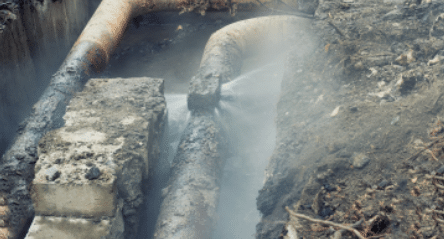
How To Detect A Leak Before Digging In San Diego?
Plumbing leaks can be a pain to find, especially if they’re buried underground. The last thing you want to do is start digging without knowing where the leak is. That’s why we’ve compiled a list of 14 ways to help you detect a leak before starting any excavation.
Check Your Water Meter
One of the first things you should do if you suspect a leak is check your water meter. If the meter is running even when all water appliances are turned off, there may be a leak somewhere in your system.
Check For Wet Spots On Your Property
Another telltale sign of a leak is wet spots on your property that weren’t there before. These could be signs of a leaking pipe underground.
Check For Mold Or Mildew
If you notice any mold or mildew in your home, it could be a sign of a hidden leak. These usually occur in areas where there is high humidity, such as the bathroom or kitchen.
Look For Peeling Paint
Peeling paint is another common indicator of a plumbing leak. This is usually caused by moisture seeping through cracks in the pipe and causing the paint to blister and peel.
Check For Damp Carpet
Damp carpet or flooring can also be a sign of a plumbing leak. If you notice any dampness, it’s important to investigate further to find the source of the problem.
Listen For Dripping Sounds
If you think there might be a leak, one of the best things you can do is quietly listen for any dripping sounds. This could help you pinpoint the location of the leak.
Use A Stethoscope
If you’re still having trouble finding the source of the leak, try using a stethoscope. This will amplify any small sounds so you can more easily find the leak.
Check Your Water Bill
An unusually high water bill is another surefire way to tell if you have a plumbing leak. If you’ve been using the same amount of water but your bill has suddenly gone up, it’s likely because of a leak.
Look For Foundation Cracks
Foundation cracks are another common sign of leaks, as they’re often caused by water seeping through cracks in the pipes. If you notice any cracks in your foundation, it’s important to have them checked out.
Check For Leaks In The Attic
The attic is another common place for leaks to occur. If you think there might be a leak, it’s a good idea to check the area for any signs of water damage.
Inspect Your Ceilings
Another place to look for leaks is on your ceilings. If you notice any stains or dampness, it’s likely that there’s a leak somewhere above.
Use Food Coloring
One way to test for leaks is to use food coloring. Simply add a few drops of food coloring to your toilet tank and see if it appears in the bowl within 15 minutes. If it does, you have a leak.
Conclusion
There are a number of ways to detect a plumbing leak before starting any excavation. By following the tips on this list, you can save yourself a lot of time and effort in finding the source of the problem. For more information, contact 1st Response Plumber at (858) 203-0930.



